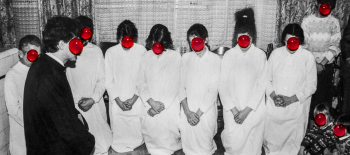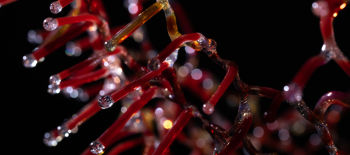‘Joy & Devotion’ a new annual Festival of Polish Sacred Music in the UK
2 – 5 November 2021 | St Martin-in-the-Fields, London
4 November 2021 | Downing Place URC, Cambridge
The Adam Mickiewicz Institute has announced the launch of ‘Joy & Devotion’, a new annual festival of Polish sacred music, continuing its dynamic endeavour to bring the abundance of Polish culture to international audiences.
Taking place at St Martin-in-the-Fields from 2 to 5 November 2021 under the artistic direction of composer and conductor Paweł Łukaszewski, Joy & Devotion features renowned choral groups The Gesualdo Six, Tenebrae and Echo performing programmes of religious works by composers both renowned and lesser-known ranging from the 13th to 21st centuries.
The Festival opens with acclaimed vocal consort The Gesualdo Six conducted and directed by Owain Park interspersing a programme of works by prominent contemporary Polish composers, including two world premieres, with Krzystof Borek’s 16th century Missa Mater Matris [2 Nov]. Borek’s Mass was the inspiration for the programme, based itself on the Missa Mater Matris by Josquin des Pres
whose anniversary celebration continues five hundred years after his death. Works being given their world premieres include Aleksander Jan Szopa’s Ave, Regina caelorum and Łukasz Farcinkiewicz’s O salutaris Hostia, alongside the late Krzysztof Penderecki’s Benedicamus Domino (from his 1992 Missa brevis) and Andrzej Panufnik & Roxanna Panufnik’s Modlitwa/Prayer. The music of post-WWII organist and improviser Marian Sawa is also spotlighted, with his Bogurodzica, Dziewica and Regina Poloniae for organ being performed.
The oldest works to be performed at the Festival, 15th century Jerzy Liban’s Ortus de Polonia and 13th century Wincenty of Kielcza’s Gaude Mater Polonia, bookend Nigel Short’s programme for the award-winning choir Tenebrae [4 Nov]. The concert also includes a composition by Festival Artistic Director Paweł Łukaszewski, his Prayer for those who shall return, as well as Henryk Mikołaj Górecki’s Totus tuus, written at the end of communism in 1987 following John Paul II’s 3rd Pilgrimage to Poland, and Wojciech Kilar’s Dona nobis pacem, from his Missa pro pace written for the 100th anniversary of the Warsaw Philharmonic in 2000. 16th century composer Marcin Leopolita’s Missa Paschalis will also be sung and Miezysław Surzyński’s Improvisations on the Polish Sacred Song “Holy God” op. 38 for organ.
Bringing the Festival to a close is the young but highly regarded vocal ensemble Echo conducted by Sarah Latto, performing a programme of music featuring the 17th century composer Grzegorz Gerwazy Gorczycki’s Missa Paschalis as its centrepiece [5 Nov]. His minimal ‘Stile Antico’ writing provides the structure and inspiration for the rest of the programme which includes 16th century motets by Mikołaj Zieleński and Wacław of Szamotuły set against works by three vibrant modern composers: British-Polish composer Roxanna Panufnik and emerging Polish composers Aleksandra Chmielewska and Anna Rocławska-Musiałczyk.
Joy & Devotion will also be presented outside of the Capital, with Echo giving a concert at Downing Place URC in Cambridge as part of the Cambridge Festival of the Voice, [4 Nov]. Titled ‘The Polish Court’, this programme explores the work of composers living in Warsaw and Krakow in the 16th and 17th centuries, again featuring Gorczycki’s Missa Paschalis and Zielenski’s Laetentur caeli alongside works by Italian composers Luca Marenzio, Asprillo Pacelli and Vincenzo Bertolusi.
Poland has a rich history of sacred composition to be revealed to British audiences, dating as far back as the 13th century. Compositions from this time include those dedicated to the venerated Polish icon the Black Madonna of Częstochowa, such as Wincenty of Kielcza’s Gaude Mater Polonia and the Bogurodzica melody believed to be the oldest religious hymn in the Polish language. Rapid
innovation ensued during the 16th century, when composers including Wacław of Szamotuly, Mikołaj Zieleński and Marcin Leopolita wrote for ensembles belonging to the King and Archbishop of Wawel in Kraków.
More recently, the Polish Pope John Paul II’s election was a particular inspiration for popular contemporary composers such as Penderecki, Górecki and Wojciech Kilar, while British-Polish composer Roxanna Panufnik’s music is infused with references to her Polish heritage. The younger generation of composers in Poland today and featured in the Festival is no less compelling: Aleksandra Chmielewska and Anna Rocławska-Musiałczyk from Warsaw and Gdańsk respectively have varied repertoire to show for, while Aleksander Jan Szopa and Łukasz Farcinkiewicz are recent graduates of the Fryderyk Chopin University of Music in Warsaw and demonstrate the great potential of Polish sacred music to come.



